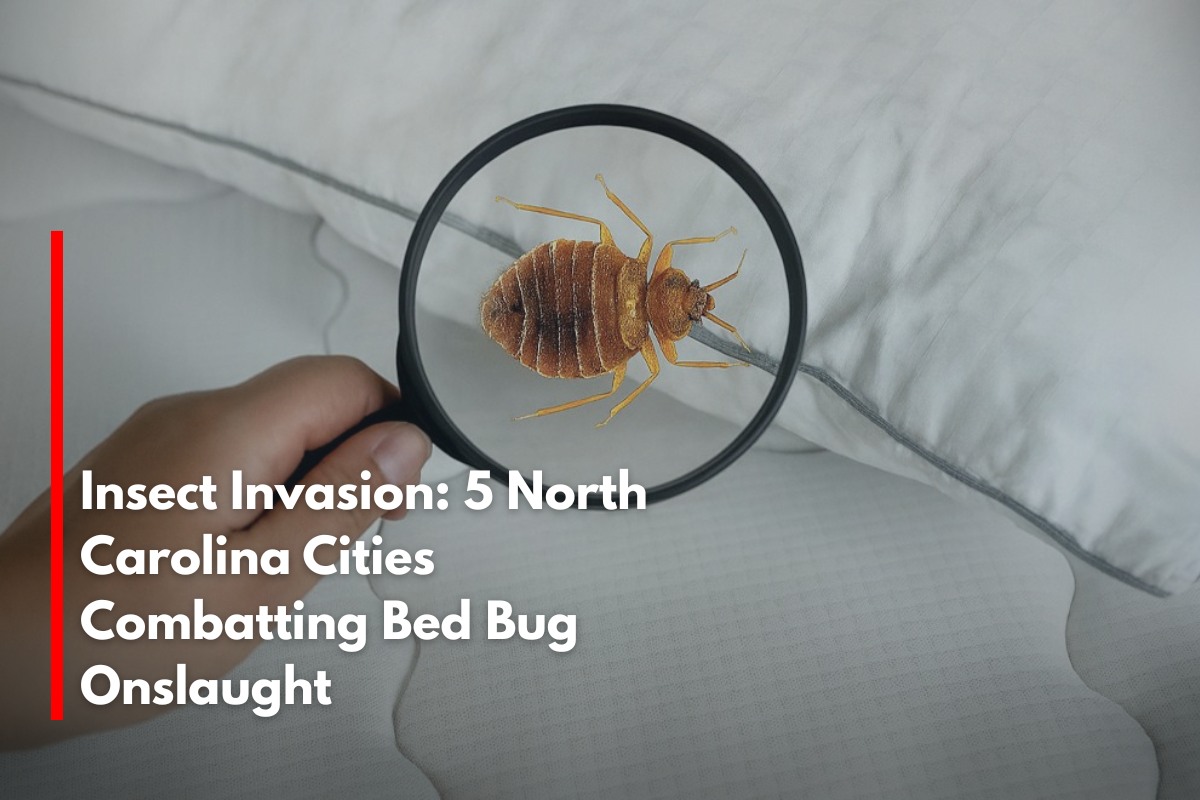Bed bugs are making a strong comeback across North Carolina, invading homes, hotels, dormitories, and public housing. These tiny pests cause significant discomfort and pose a major challenge for residents and city officials alike.
Fortunately, several North Carolina cities are taking bold, innovative steps to combat the bed bug onslaught and protect their communities. This article highlights five key cities leading the charge in controlling and eradicating bed bug infestations.
Raleigh: Community Programs and Prevention First
Raleigh launched the “Bug-Free Raleigh” campaign focused on education, prevention, and support for affected residents. Through this initiative, the city provides:
Free hotlines and inspections targeted at low-income households
Heat-treatment vouchers to help families afford effective bed bug eradication
Workshops in community centers teaching identification and prevention
Partnerships with landlords to encourage early detection and compliance with lease agreements
These efforts helped reduce untreated infestations by about 30% in 2024, fostering cooperation between tenants and property managers and empowering residents through knowledge.
Charlotte: Fighting Bugs with Technology and Awareness
Charlotte takes a tech-savvy approach through the “Catch it Early” app, allowing residents to anonymously report suspected bed bug sightings. The app accelerates responses, enabling rapid inspections within hours. Key features include:
Over 120 infestation hotspots intercepted quickly
A social media campaign reaching over 200,000 users with detection tips and prevention strategies
Focus on tackling infestations in high-density housing and transit hubs
Charlotte’s data-driven strategy not only increases early detection but also builds awareness, making it a model for other metro areas.
Greensboro: Heat Squads and Building-Wide Treatments
Greensboro introduced the “Heat Squad” program, which conducts whole-building heat treatments in multi-unit residences—a critical step since over 90% of bed bugs in apartment settings can be eliminated via heat. The program offers:
Survival kits including mattress covers and sprays
Weekly follow-up inspections for a full month
Education sessions for tenants before and after treatments
This approach boasts a 90% success rate with zero recurrence reported over six months, dramatically improving living conditions in affected buildings.
Durham: Research-Based Public Housing Strategy
Durham applies Integrated Pest Management (IPM) techniques backed by research, focusing primarily on public housing. The program includes:
Quarterly scheduled inspections and staff training on early signs of bed bugs
Bed bug monitors placed discreetly under beds and sofas
Tiered responses ranging from steam cleaning to fumigation
This strategy has driven infestation rates down by 68% in under a year and made Durham a national example of effective, science-based bed bug control.
Winston-Salem: Building Trust and Removing Stigma
Winston-Salem’s program targets reducing stigma among renters, encouraging early reporting without fear of retaliation. Key features include:
Anonymous reporting systems and mediation between tenants and landlords
Subsidized treatments for vulnerable populations including students and low-income families
Community outreach through churches, food banks, and universities
Free disposal sites for secondhand furniture to prevent the spread of bed bugs
These efforts increased early reporting fourfold and helped over 400 households access treatment and support.
Common Success Factors Across Cities
The North Carolina cities combating bed bugs share several successful strategies:
Early detection and education campaigns
Targeted heat and steam treatments over chemical sprays
Financial support to make treatments affordable
Collaboration between residents, landlords, and municipal agencies
Ongoing follow-up to prevent reinfestations
Challenges and the Road Ahead
Despite innovative efforts, challenges remain, such as insecticide resistance, reinfestation from travel or used furniture, and behavioral hurdles, including resident cooperation. To overcome these, cities are exploring smart detection tech, biological treatments, and regional data-sharing initiatives.
United Against Bed Bugs
Bed bugs may be tiny, but their impact is significant. The determined efforts by Raleigh, Charlotte, Greensboro, Durham, and Winston-Salem demonstrate that early action, community involvement, and technological innovation can turn the tide on this persistent pest. North Carolina’s approach offers a blueprint other states can follow to protect residents from bed bug infestations and promote healthier living environments.
Sources
(https://spectacularmag.com/2025/07/12/nc-cities-take-bold-action-as-outbreak-of-bed-bugs-rise-across-the-state/)
(https://www.yahoo.com/news/articles/nc-city-among-most-bug-100000462.html)
(https://www.iheart.com/content/2024-01-26-3-north-carolina-cities-among-the-worst-cities-for-bed-bugs-in-the-us/)
(https://www.orkin.com/press-room/worst-cities-for-bed-bugs-annual-rankings)
(https://www.myfsps.com/bed-bugs/the-50-most-bed-bug-infested-cities-in-america/)











